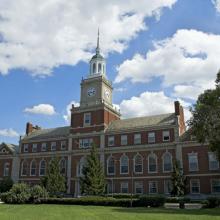Gayraud Wilmore
For many pundits and observers, last week’s election proved that a “new normal” has emerged in America: record numbers of women and ethnic minorities were voted into the House and the Senate, and the House will also see its first Hindu representative in January. Voters in Maine and Maryland approved same-sex marriage, and a diverse coalition of social minorities came together to re-elect the nation's first black president.
But for black theologians, the election has also been an occasion to reflect on how the black church faces an identity crisis, losing track of its mission to lead the way in issues of justice and liberation.
“Something happened to the black church after the assassination of Martin Luther King, Jr., in 1968,” said Dr. Gayraud Wilmore, one of the founders of black theology, adding that when King died, it seemed that in black congregations, the enthusiasm for black history and racial identity also died.
And for Wilmore, the last 44 years — even the election and re-election of a black president — have done little to abate this crisis.
